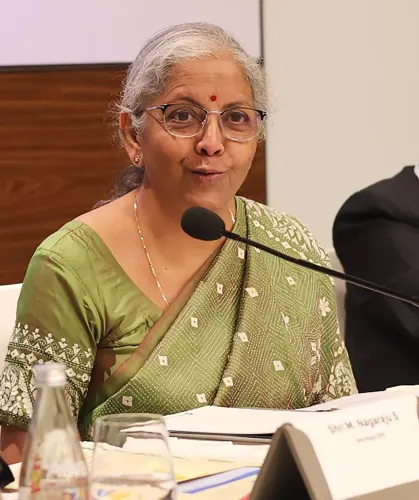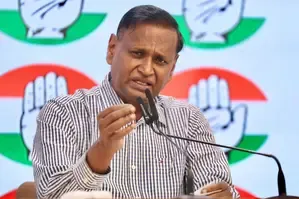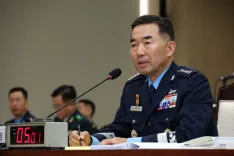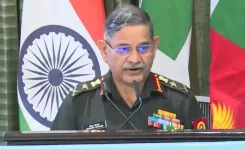Should Homoeopathy Be Integrated into Psychosocial Care?
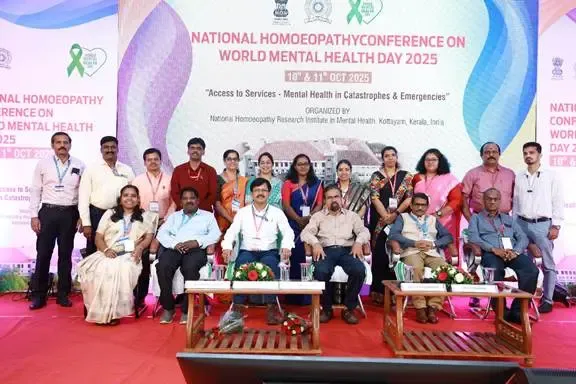
Synopsis
Key Takeaways
- Integration of homoeopathy into psychosocial care frameworks is crucial.
- Focus on evidence-based practices for mental health services.
- Importance of accessibility during psychiatric emergencies.
- Holistic support systems are essential during crises.
- Postgraduate research showcased diverse mental health conditions.
New Delhi, Oct 13 (NationPress) Health experts at a two-day National Homoeopathy Conference have emphasized the necessity of incorporating homoeopathy into psychosocial care and psychiatric emergencies. The conference, organized by the National Homoeopathy Research Institute in Mental Health (NHRIMH), Kottayam, an esteemed institution under the Central Council for Research in Homoeopathy (CCRH), Ministry of AYUSH, was part of the celebrations for World Mental Health Day 2025.
The event took place from October 10 to 11 at the NHRIMH Auditorium in Kottayam, Kerala, with the central theme focusing on access to mental health services during crises and emergencies.
In his virtual address, Dr. Subhash Kaushik, Director General of CCRH, highlighted the importance of integrating homoeopathy into existing psychosocial care frameworks, especially in the context of post-disaster rehabilitation and resilience, drawing on substantial research evidence.
“Incorporating homoeopathy into disaster response strategies can ensure wider accessibility of mental health services,” stated Chetan Kumar Meena, IAS, District Collector of Kottayam. He praised the ongoing initiatives of NHRIMH in promoting integrative mental health care.
This national conference on integrative mental health care during disasters and emergencies attracted significant participation from notable dignitaries and practitioners in the fields of homoeopathy and mental health across India.
The discussions emphasized the increasing significance of homoeopathy in psychiatric emergencies, while also exploring innovative research and integrative approaches in mental health care.
Postgraduate trainees from NHRIMH showcased their research dissertations on various mental health issues, including bipolar disorder, internet addiction, schizophrenia, major depressive disorder, obsessive-compulsive disorder, alcohol dependence, cannabis use disorder, autism spectrum disorder, and Parkinson’s disease.
The experts underscored the critical need for strengthening holistic and person-centered mental health support systems, especially during crises and emergencies.
The conference reaffirmed the necessity for evidence-based, integrative, and accessible mental health services while highlighting the valuable role of homoeopathy as a complementary element in psychosocial and disaster mental health frameworks.



